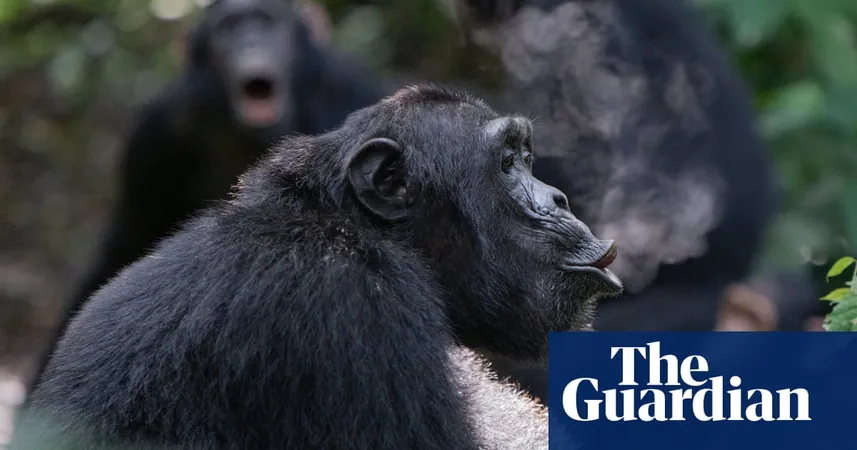
Chimpanzees' Surprising Beats: New Insights on the Roots of Music
2025-05-09
Author: William
The Beat Goes On: Chimps Have Rhythm!
While they may not be topping charts with Gershwin, a recent study reveals that chimpanzees possess a sense of rhythm that could unlock the mysteries of music’s evolutionary origins.
From Trees to Tunes: The Chimp Drumming Phenomenon
In their natural habitat, chimpanzees have been observed drumming on tree buttress roots, communicating with each other through unique rhythms. Until now, it was a mystery whether these primate percussionists applied timing to their beats.
Thanks to new research, scientists have discovered that chimpanzees drum with intentionality and distinct rhythmic patterns that vary between subspecies.
A Journey Back in Time: The Evolutionary Significance
Prof. Catherine Hobaiter from the University of St Andrews describes these findings as a compelling indication that the foundations of rhythm—vital to human social interactions and music—may date back to our last common ancestor with chimpanzees.
Sound Study: Analyzing Chimp Beats
Led by PhD student Vesta Eleuteri, the research analyzed 371 drumming sessions from 47 chimps across six populations of eastern and western subspecies. The results were astonishing: all subjects displayed a non-random, predictable timing in their drumming.
"This predictability indicates a strong presence of rhythm," Hobaiter noted, highlighting the structured nature of their beats.
Diverse Drumming Styles: Eastern vs. Western Chimps
Differentiating between the two subspecies, the study found that western chimpanzees maintain steady, evenly spaced beats—like a metronome—while eastern chimpanzees employ a syncopated style with varying intervals that create a distinctive swing.
Interestingly, despite similar drumming durations, western chimps deliver more hits at a faster tempo than their eastern counterparts.
Rugged Rhythms: The Role of Environment and Society
Why do these subspecies drum so differently? While ecological factors don’t seem to be influencing the rhythms, societal dynamics may play a role. Eastern chimpanzees, which tend to show more aggressive behavior, might require intricate communication methods.
"Variable intervals allow for encoding more complex information, similar to how Morse code conveys messages differently than something simplistic," Hobaiter explained.
A Glimpse into Our Musical Past
Although chimpanzees are not replicating human-like rhythms, their drumming exhibits fundamental musical properties, suggesting that the origins of music may stretch back millions of years before our ancestors took form.
"Long before humans existed—six to seven million years ago—our primate predecessors likely possessed the basic building blocks of rhythm that paved the way for our musical heritage," concluded Hobaiter.









 Brasil (PT)
Brasil (PT)
 Canada (EN)
Canada (EN)
 Chile (ES)
Chile (ES)
 Česko (CS)
Česko (CS)
 대한민국 (KO)
대한민국 (KO)
 España (ES)
España (ES)
 France (FR)
France (FR)
 Hong Kong (EN)
Hong Kong (EN)
 Italia (IT)
Italia (IT)
 日本 (JA)
日本 (JA)
 Magyarország (HU)
Magyarország (HU)
 Norge (NO)
Norge (NO)
 Polska (PL)
Polska (PL)
 Schweiz (DE)
Schweiz (DE)
 Singapore (EN)
Singapore (EN)
 Sverige (SV)
Sverige (SV)
 Suomi (FI)
Suomi (FI)
 Türkiye (TR)
Türkiye (TR)
 الإمارات العربية المتحدة (AR)
الإمارات العربية المتحدة (AR)